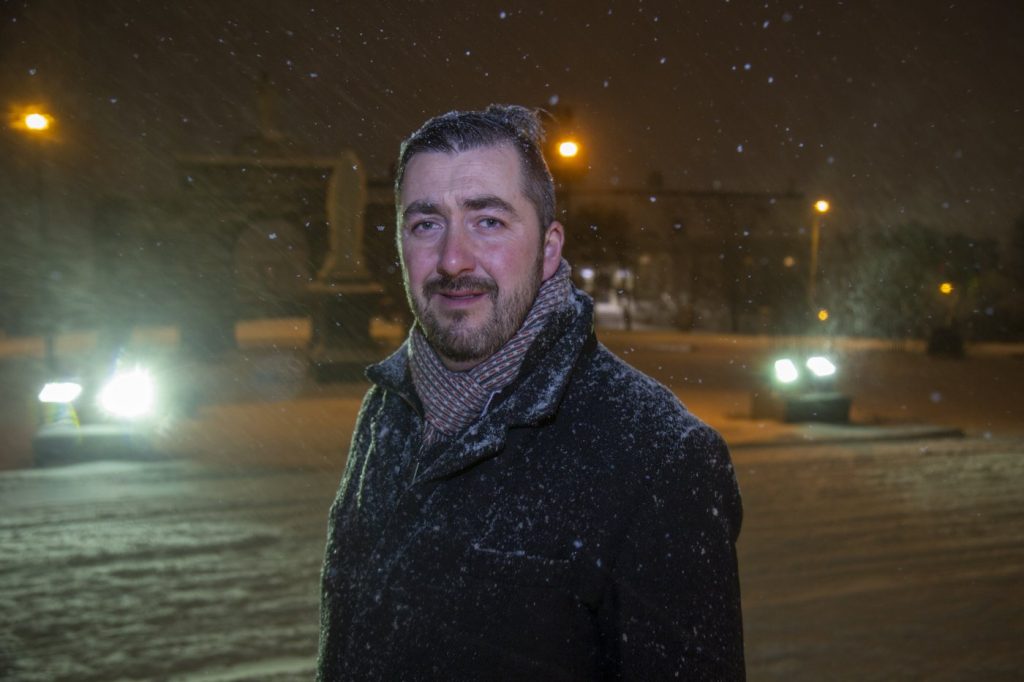ST. JOHN’S, N.L. – As of now, only 110 individuals have enrolled in Newfoundland and Labrador’s recently launched basic income program designed for older adults. This figure is alarmingly low, representing less than one-third of the approximately 350 people who qualify for the program. Launched in May, the initiative is aimed at alleviating poverty amongst adults aged 60 to 64 who are dependent on income assistance and health-related support programs, according to the province’s Department of Children, Seniors and Social Development.
Josh Smee, CEO of the non-profit Food First N.L., expressed that he was not surprised by the low enrollment numbers. He noted the complexity of the social assistance system can deter individuals from participating. “The system itself is so complicated,” Smee commented in a recent interview. “I would imagine that the conversation about a big shift in how your benefits come through could be intimidating.”
The provincial government announced the basic income pilot program in 2023 as part of its broader poverty reduction strategy. For eligible participants, the program promises an income increase to the level they would receive upon turning 65 and qualifying for federal senior benefits. For instance, a single adult living alone on provincial income support currently receives a basic amount of $561 per month, in addition to up to $299 in rent coverage. Under the new basic income program, this amount would jump to $1,937 monthly.
Despite the potential increase in income, concerns linger about the possibility of reduced assistance for essential services, such as home support from the provincial health authority. Jim Dinn, the leader of the provincial New Democratic Party (NDP), articulated that potential beneficiaries might fear they would be worse off if services cost more as their income rises. Moreover, Dinn highlighted that many may worry about the risk of rent increases from landlords who could exploit the situation once they notice their tenants have more disposable income.
To ensure the success of a basic income program, Dinn emphasized the need for a robust social safety net. “I’m still calling for a basic income plan,” he stated. “But we still need deeply affordable housing.” The Department of Children, Seniors and Social Development has not provided specific reasons for the low uptake. However, officials have reached out to eligible individuals, offering detailed information about their current benefits and how these may change if they participate in the pilot.
According to spokesperson Kathryn Summers, “This approach allows people to engage in a detailed discussion with income support staff about the pilot and ask questions related to their particular circumstances.” Though the province has contacted all eligible individuals, ongoing enrollment is still available.
Dan Meades, the provincial coordinator with the Transition House Association of Newfoundland and Labrador, echoed the sentiments of many regarding fears of losing essential benefits. He is hopeful that the province is actively tracking these issues and will consider adjustments to the program, with the aim of potentially scaling it up in the future. Smee expressed a desire for the basic income pilot to expand beyond the current group of 350 eligible individuals, noting that the province could feasibly reach a larger audience.
Summers confirmed that in an effort to reduce the complexity of income support programs, specific changes are already being implemented. For instance, individuals under the age of 30 now receive the same benefits as other adults, and those residing with boarders will not face clawbacks on their benefits. Furthermore, the government has announced the introduction of a disability benefit starting in July, which will complement the federal program, providing up to $400 a month to qualifying individuals — an estimated 5,000 residents in Newfoundland and Labrador are expected to benefit from this initiative.










